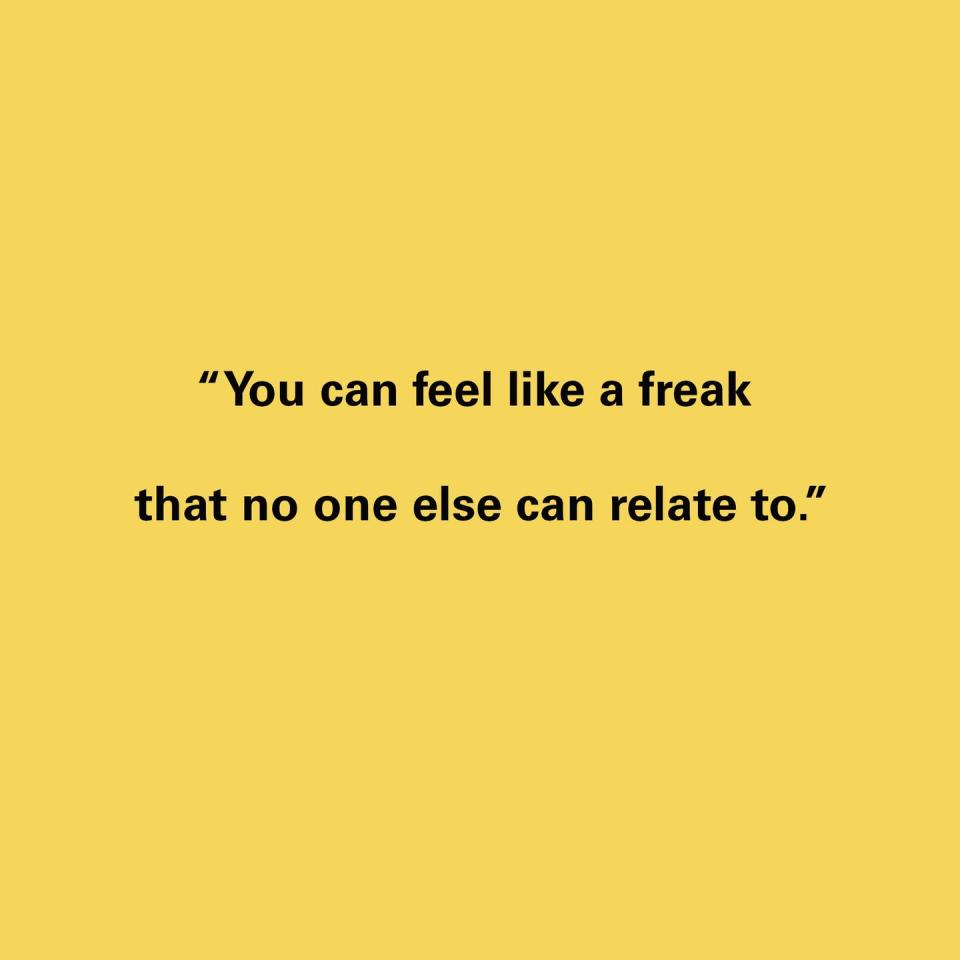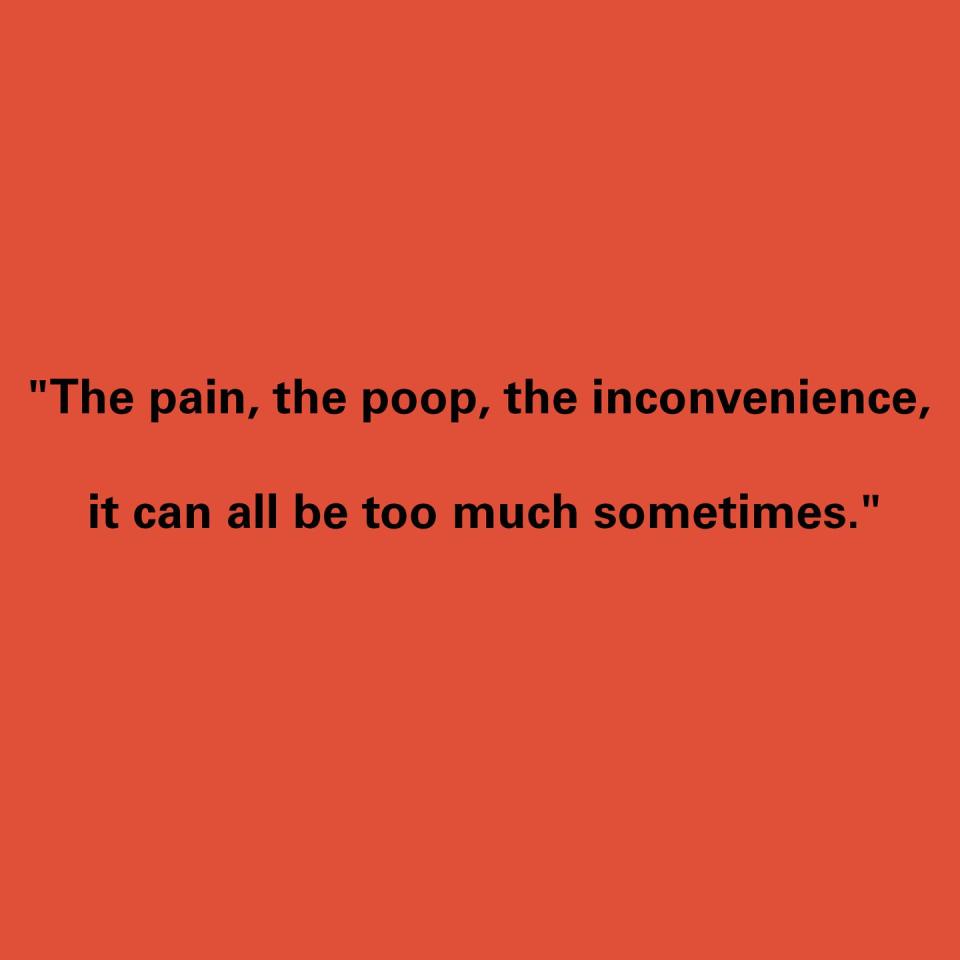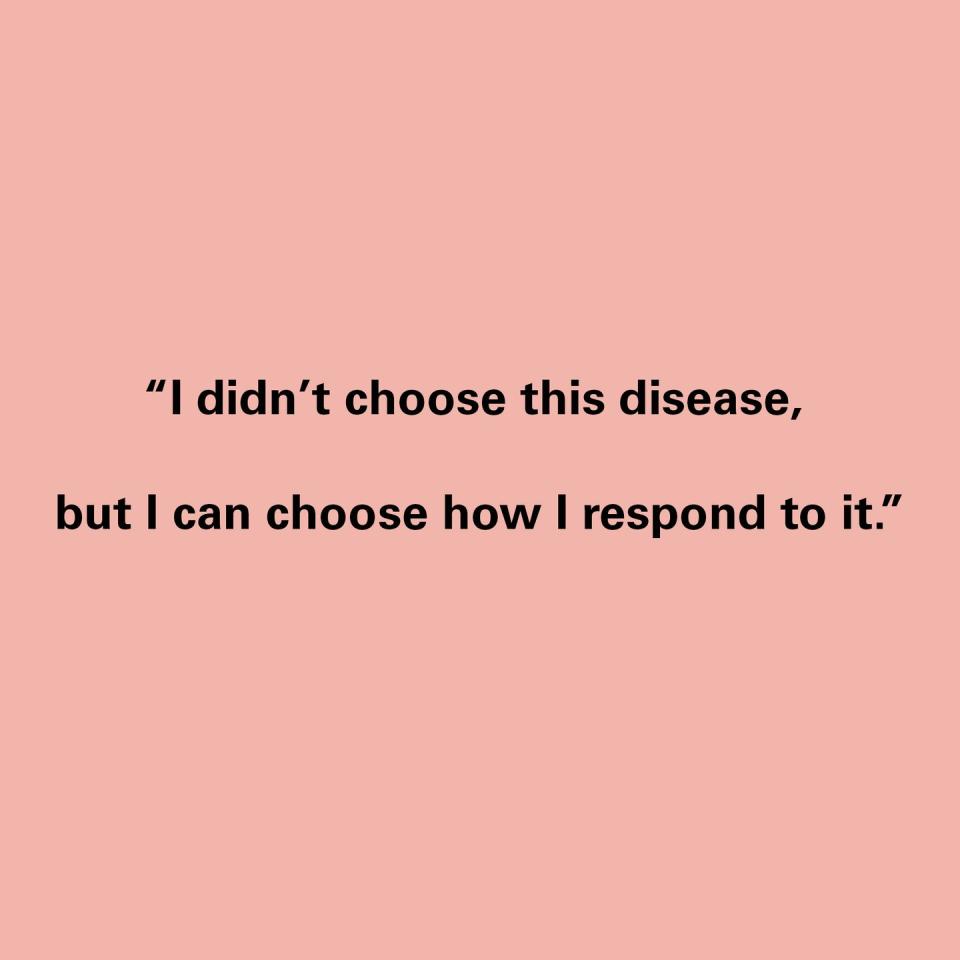8 Ways a Crohn’s Diagnosis Might Change Your Life

“Congratulations, you have Crohn’s disease!” said no doctor, ever.
There’s nothing fun about finding out that you have the incurable inflammatory bowel disease (IBD). Hallmark symptoms include abdominal pain, cramping, weight loss, and bloody diarrhea, to name but a few. (Like we said, nothing fun.) Believe it or not, though, there’s some good news.
Now that you’ve been diagnosed and know what you’re dealing with, you can take steps to control your symptoms and get your life back. Here, people living with Crohn's disease explain what changes might be coming down the pipeline, and offer smart advice that can help you navigate your new normal living with an IBD.
Remember to always talk with your doctor before trying something new to manage your Crohn’s disease.
1) You must listen to your body more carefully.
Crohn’s isn’t a one-size-fits-all disease. “What could trigger my Crohn’s may not bother yours,” says Alissa Smith, whose Crohn’s recently went into remission after 15 years.
She recommends keeping a detailed food journal for two to three months to pinpoint exactly what bothers you. It feels like a lot of work, but it’s worth it. After closely tracking her diet, Smith realized that strawberries, broccoli, cabbage, milk, and soda always caused her GI system to go haywire, so she cut them out. “Not having them is much easier than the pain I endured from eating them,” she says.

2) Your social network might need an upgrade.
Constantly worrying about having to run to the bathroom-and locking yourself in there for what feels like forever-can be pretty isolating. “You can feel like a freak sometimes that no one else can relate to,” says Eric Berlin, who was diagnosed with Crohn’s in the 1980s and currently serves as president of the Gastro-Intestinal Research Foundation.
Having a strong support system is key for keeping those feelings at bay. If you aren’t getting what you need from family members or friends, try getting to know others with irritable bowel conditions, recommends Natalie Hayden, founder of the Lights, Camera, Crohn’s blog.
Connect with patient advocates or support groups in your community, or reach out to people through Crohn’s blogs or social media groups. Not sure where to look? The Crohn’s & Colitis Foundation is a good place to start.
3) You have to take things one day at a time.
Learning that you have Crohn’s can be completely overwhelming, but focusing on the short-term can help. “My advice is to take that first year one day at a time,” says Hayden. It might sound impossible now, but eventually, things will fall into place.

4) You learn to look on the bright side.
Nothing about your diagnosis will seem funny at first. “The pain, the poop, the inconvenience, it can all be too much sometimes,” says Leaving the Seat Down founder Vern Laine, who was diagnosed with Crohn’s more than 30 years ago. But over time, you might find that humor can help you cope. “Surround yourself with people who don’t laugh at you, but laugh with you and understand how difficult it can be to deal with everything that Crohn’s disease can throw at you,” he says.
5) Dr. Google might get even scarier.
Looking up symptoms online can make anyone sweat, but when you’ve got Crohn’s, too much time Googling could get seriously upsetting. “When I encounter people newly diagnosed, I tell them that the internet is not their friend. The negative information on the web can actually make people spiral downward instead of picking them up,” Berlin says.
You’re much better off turning to your healthcare team for answers. When Smith was diagnosed with non-Hodgkins lymphoma, she found out she couldn’t take medicine to manage her Crohn’s. Her doctors helped her find alternative ways to control her symptoms, like avoiding certain foods and sticking with easy-to-digest starches during flare-ups. “Before having them, I felt lost with my Crohn’s struggles,” she says. “The comfort and peace of mind knowing they have my best interests at heart is priceless.”

6) You always need to be prepared. Always.
Knowing that you might have to run to the bathroom during an outing or social event can turn you into a nervous wreck. “Always bring extra underwear, clothes, and toilet paper,” says Jenni Lock, founder of the Jenni’s Guts blog. “Chances are you won’t need it. But if you don’t bring it, you’ll probably wish you had.”
It’s also worth checking out the restroom situation before you agree to plans. “If you can have access to a decent and comfortable place to go, it makes social situations easier and can relieve a lot of the anxiety that can occur,” Lock says.
7) If you haven’t learned to stick up for yourself before, you will now.
There’s no one path to managing Crohn’s symptoms-you’ve got to figure out what works for you. The best way to do that? “Empower yourself with knowledge and explore all the options available,” says Academy of Culinary Nutrition Founder Meghan Telpner, whose Crohn’s has been in remission for 12 years.
That might mean advocating for yourself more than you’ve had to in the past. “Our healthcare system is extremely difficult to navigate, especially with a chronic illness,” says Tatiana Skomski. “You need to be able to speak up for yourself or have someone who can when something doesn’t feel right, or you need a second opinion.”

8) You’ve got to stay on top of your stress.
Stress can make your symptoms flare up, and flare-ups can make you more stressed. It’s a vicious cycle, but prioritizing your mental health can help. “Emotional wellness is so important to physical ailments. This has been make or break for me,” says Rachel Johnston, a public relations director who’s had Crohn’s since she was a teenager.
Carve out time to relax, vent to a friend, and try to be active as much as possible. (Exercise is a proven stress-buster!) “My attitude is that I’m going to use my body to the fullest of its abilities rather than feeling sorry for myself,” Johnston says. “I didn’t choose this disease, but I can choose how I respond to it,” Johnston says.
('You Might Also Like',)

